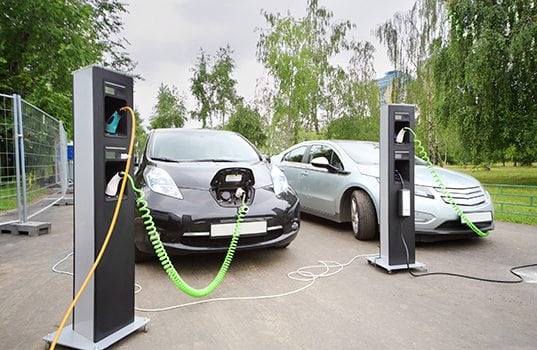A motor industry body is calling on the UK government to make a £30 million (m) investment in specialist electric and hybrid vehicle training for thousands of maintenance and repair technicians in the independent retail sector. The Institute of the Motor Industry (IMI) believes the investment is crucial to support the public switch to ultra-low emission vehicles (ULEV).
The IMI says the government will need to spend a proportion of the £600m it has set aside to promote the uptake of low emission vehicles on the technical skills infrastructure across the whole UK. It says the £40m already allocated to cities to meet air quality and emission targets, and the Chancellor’s goal of every new car and van being ULEV by 2040, will not work in isolation.
Research commissioned by the Institute of the Motor Industry shows UK sales of electrified vehicles doubling since 2015, but despite this growth the number of qualified repairers in the UK remains at around 0.4% of the 250,000 mechanics working on cars and vans commercially.
There are serious health and safety issues for unskilled mechanics attempting to work on machines with 600 volts coursing through them. The IMI says sales growth will stall unless small repair businesses are helped to make the investment in skills needed to provide consumers with choice and value for money. It will mean ordinary working people will be priced out of the ULEV market.
Insurance premiums for electrified vehicles* are already 30% – 50% higher than diesel cars because of the lack of qualified repairers.
Over 90% of independent garages say they would need to retrain existing technicians to undertake work on these electrified vehicles. It’s clear that unless there is a proactive strategy from the government to encourage this training, the UK will not be able to support the growth of future car technology.
Steve Nash, IMI CEO, said:
“There are currently around 1,000 people qualified to work on high voltage electrics and they all work for the vehicle manufacturers.
“Without financial assistance, independent garages that make up 85% of the businesses operating in the service and repair sector will not invest in the training they need without certainty of a financial return. That means that their staff will either risk their lives working on unfamiliar systems that carry lethally high voltages, or they will simply refer everything back to the franchised dealers, reducing competition in the sector. I cannot imagine that either of those outcomes is likely to be palatable for the government.”
The IMI research, “On the Road to Sustainable Growth,” by Professor Jim Saker, has been presented to the Department for Transport (DFT) consultation on proposed ultra-low emission vehicle measures for inclusion in the Modern Transport Bill.
*Electrified cars refers to fully electric, plug-in hybrid and hybrid vehicles.
Report Summary
- The UK has 250,000 maintenance and repair technicians and only 1,000 technicians currently qualified at a Level 3 in Electric and Hybrid Car Maintenance.
- The overall economic and social benefit of electric vehicles (EVs), connected and autonomous vehicles could be in the region of £51 billion per year by 2030.
- The nature and geographical structure of the UK presents the opportunity for the country to be world leading in the implementation of the new technologies.
- Government should commit to supporting the installation of 1,250 hydrogen refueling stations across the UK.
- Government should make it illegal for unregistered technicians to work initially on EV and fuel cell electric vehicle (FCEV) cars from 2016 with the scheme being rolled out for all technicians by 2020.
- The IMI Professional Register lists individuals, such as car mechanics and sales representatives, in the automotive industry who have been recognised for their experience, professionalism and commitment to ethical working practices, and for continually keeping their knowledge and skills up to date with the latest training from within the industry: www.imiregister.org.uk.
About IMI: IMI is the professional body for individuals working in the motor industry, and the authoritative voice of the sector.









